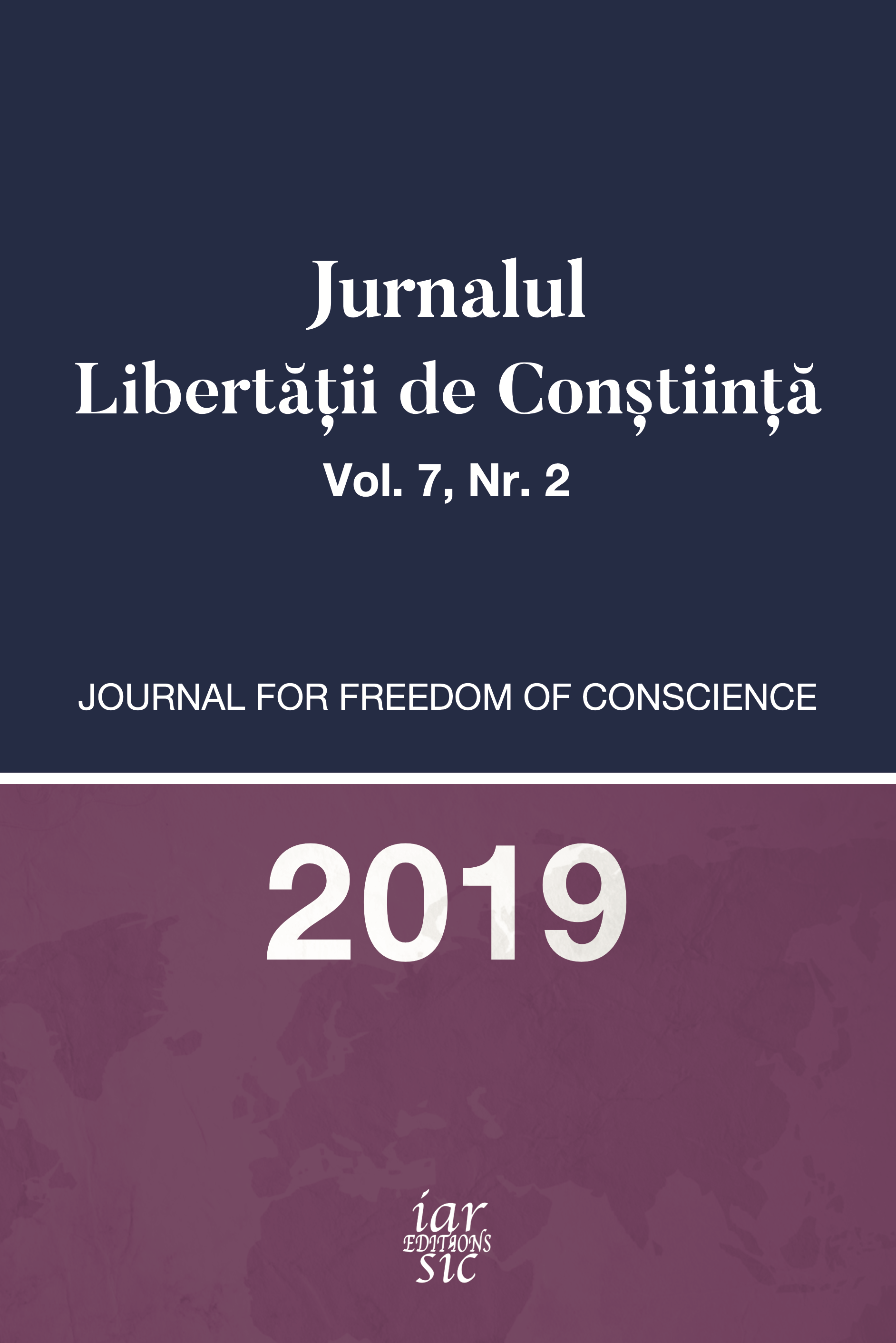CREDINȚĂ ÎN LIBERTATE ȘI LIBERTATE
ÎN CREDINȚĂ: O SINTEZĂ A MODELULUI ECLEZIOLOGIC BAPTIST PROPUS DE THOMAS HELWYS ÎN „A SHORT DECLARATION OF THE MYSTERY OF INIQUITY” PENTRU LIBERTATEA DE CONȘTIINȚĂ
Faith in Freedom and Freedom in Faith: A Synthesis of the Baptist Ecclesiological Model Proposed by Thomas Helwys in „A Short Declaration of The Mystery of Iniquity” for Freedom of Conscience
Author(s): Ruben OlogeanuSubject(s): History, History of ideas
Published by: Editions IARSIC
Keywords: Thomas Helwys; baptist; freedom of conscience; A Short Declaration of the Mystery of Inequity; ecclesiology;
Summary/Abstract: This article explores the emergence, contribution and trajectory that the pioneer of the Baptist movement, Thomas Helwys, imprinted on the idea of freedom of conscience. In an innovative way for his time, he demanded reli gious freedom that far exceeded the boundaries of the small Baptist confession he founded with John Smyth in England. If today in a democratic society freedom of conscience is a sine qua non condition, this is not the case in the sixteenth and seventeenth centuries when for such ideas a series of believers considered ‚separatists’ paid with freedom or even with life. In such a time, Thomas Helwys writes to King James I in A Short Declaration of The Mystery of Iniquity that the limits of his power should not extend to the consciousness of his subjects, and they must be left to decide what their spi ritual course is. Obviously, such an idea launched in a time when the Church and the State functioned according to the Constantinopolitan model of the symphony, generated a fierce opposition. However, over time, but also thanks to the courage with which the idea was defended, society understood that religious plurality cannot be an enemy of it, but rather a balancing factor.
Journal: Jurnalul Libertății de Conștiință
- Issue Year: 7/2019
- Issue No: 2
- Page Range: 131-142
- Page Count: 12
- Language: Romanian

